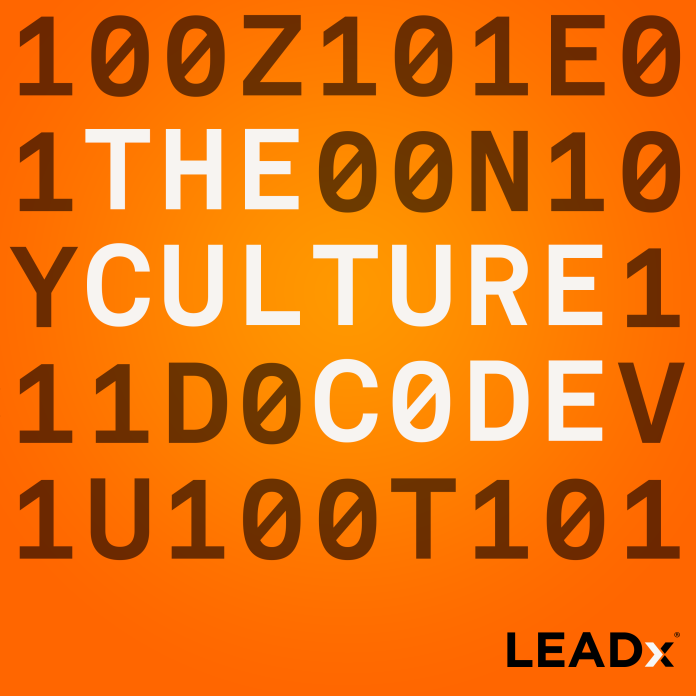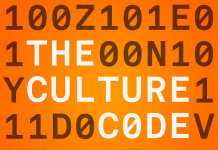
As companies grow, the need to define company culture poses a challenge. Companies must establish their culture in an authentic and useful way that is not overly formalized or bureaucratic. Adoption often becomes a hurdle. Jay Barney wrote in the Harvard Business Review, “While people tend to resist most organizational change, they’re particularly hostile to cultural change because it threatens established behaviors.”
To hear an inspiring success story firsthand, I met with ForgeRock’s chief executive officer (CEO) Fran Rosch and chief people officer (CPO) Tschudy Smith. ForgeRock is a multinational identity and access management software company. “We work with some of the largest enterprises in the world to create identity experiences that are simple and frictionless but also secure and private,” Rosch said. The company has over 1,000 employees and $250 million in revenue.
![ForgeRock’s Fran Rosch, CEO [left] and Tschudy Smith, CPO [right]](https://cdn.leadx.org/wp-content/uploads/2023/10/Forgerock.png)
Defining and Embedding Culture without Overformalizing and Bureaucratizing
One of the best strategies for making your company culture thrive is to define clear values and cultural pillars. However, employees of a fast-growing company can be very resistant to formalization and perceived “bureaucratization.”
When Rosch emerged as CEO five years ago, that experience rang true. According to Rosch, “ForgeRock was a much smaller company then and had a rebellious, rock and roll attitude. We love that rebellious way of challenging the status quo, but there was also this feeling that employees didn't want a big company bureaucracy.”
As ForgeRock began to define values and culture, initially, people responded skeptically. They saw it as “big company stuff” and “posters on the wall that no one ever looks at.” Rosch pointed out that with their massive growth rate, employees needed some way to learn the cultural ropes. He made it clear to them that management would take careful steps to define the culture before it became ingrained in everything they did. “It was very much a bottom-up process,” Rosch said. “We asked what people valued, how we could honor the past, and how we could change the future.”
Smith offered two examples of cultural pillars:
- Recognition – “Recognition is the currency of creating a culture,” Smith said. “It's what drives behavior and reinforces what you want more of. We took what used to be a top-down, nomination-based program and turned it upside down. We removed all barriers to recognition and put points and rewards in the hands of our ForgeRockers to recognize the individuals, teams, and leaders who impacted them. And as they applied recognition, they had an opportunity to highlight the cultural pillar that was aligned with action. We have had over 18,000 moments of recognition and over 71,000 virtual high fives.”
- Trust – Smith changed ForgeRock’s listening strategy to help managers build trust. Instead of an annual company survey, they started quarterly team pulses. Managers pulse their own teams and then debrief Smith’s team to agree on the next steps. “For example, I had a leader in Bristol who had expanded his role and responsibilities,” Smith said. “But he had done it during Covid and was feeling disconnected from his team. He could sense engagement was waning and was having a harder time managing his team’s performance. So, we instituted a pulse, and he came back and said that his engagement scores and team's productivity had increased and that he had clearer measures of performance.”
Three Key Characteristics to ForgeRock’s Culture
Every company culture is truly unique. When asked to describe the culture at ForgeRock, Rosch and Smith described three key characteristics:
- Challenge the status quo – Rosch said, “We have a proactive culture about challenging the status quo. We're always looking to change and improve. We're always looking to raise the bar.”
- A global company – “We are a global company,” Smith said, “but not just in the sense that we have offices in different places. We are global in the sense that we appreciate different cultures, perspectives, and the roots of this company.”
- Winning – “Winning is important,” Smith emphasized, “and winning for our customers is paramount. It's what helps us continue to exist. We also think about winning with our employees, partners, and communities. We want to leave this place in better shape than we found it.”
Unique Initiatives that Drive ForgeRock Culture
One common thread among great company cultures is that they create unique and inventive rituals.
At ForgeRock, one of these initiatives is named the Froscars (short for ForgeRock Oscars). Rosch described this event saying, “Every year we gather at our company conference and hold an award ceremony called the Froscars. We give out these little gold statues. Each category is tied to our values and cultural pillars, and nominees are selected by peers. Everyone wears tuxedos and gowns. We have a great stage. When we announce the winners, the audience goes crazy. Some people get emotional and cry tears of joy because they've been ‘Froscared’, and they proudly display their awards.”
A second unique initiative is that ForgeRock had its VP-level+ leaders produce a one-minute video about the cultural pillar that was the most meaningful. “These videos were creative, funny, and heartfelt, and showcased their passions or skills,” Smith said. “It was a wonderful way to reinforce our culture and for the leaders to share in their own words what the cultural pillars meant to them. Then, we started playing these videos at the end of each of our all-hands meetings.”
What Rosch and Smith Value Most At ForgeRock: Vulnerability
The behaviors that you set out to change dictate your culture. The behavior that Rosch and Smith most want to see at ForgeRock is vulnerability. Smith said, “The power of teams and collaboration comes from individuals being vulnerable. Vulnerability turns into trust, which turns into psychological safety. This enables people to ask for help and offer help, and when things are a little opaque, they’re willing to climb the hill together.”
What Excites Rosch Most about the Future of ForgeRock
Reflecting on ForgeRock’s future, Rosch said, “I think that we're at the cusp of radical changes in the digital identity experience. I have hundreds of different usernames and passwords. I have hundreds of different identities for all kinds of websites: banking, shopping, healthcare, and government services. It just goes on and on. ForgeRock is on the cusp of creating a world where you will never have to log in again. Where you can just be recognized and have a frictionless experience, by eliminating usernames, passwords, and multiple identities without compromising safety and privacy.”


